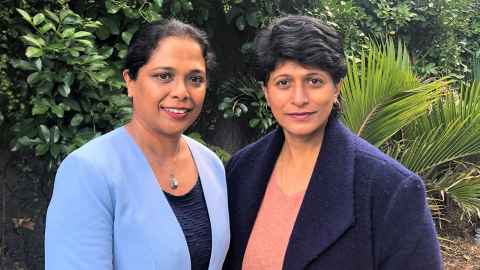Racism disproportionally affects visibly Indigenous and ethnic minority youth
30 September 2022
Māori and ethnic minority youth who are not perceived as European/Pākehā or ‘white’ are more likely to experience racial discrimination Lancet study shows.

Young people who are not perceived as European/Pākehā or ‘white’ are more likely to experience discrimination by teachers, police and healthcare providers in Aotearoa New Zealand, according to a study published in The Lancet.
Wealth may also shield ethnic or migrant youth from racism, but being perceived as white has a bigger effect, the research shows.
Ethnic minorities are those who have Asian, Pasifika, Middle Eastern, Latin American or African origins.
Associate Professor Rachel Simon-Kumar and Associate Professor RoshiniPeiris-John, of Waipapa Taumata Rau, University of Auckland, and Dr Sonia Lewycka, of the University of Oxford, analysed responses of about 7,700 school students aged 13 to 17 who were surveyed in 2019 as part of a long-running study called Youth2000.
“Colourism – skin-shade prejudice – is disturbingly persistent in our society,” said Dr Simon-Kumar. “Educational interventions and diversity training for teachers, health workers and the police are essential to combat these biases.”
“The results were striking,” said Dr Peiris-John. “Being affluent protected against some of the effects of racism but passing for white had a greater protective effect for young people.”
The study relied on students’ assessments of how they were perceived and discriminated against in connection with unfair treatment by teachers, health providers and the police; being bullied in school; and feeling safe in their schools or neighbourhoods.
Twelve percent of youth said they were perceived as being Pākehā or white despite being Māori or members of ethnic minority groups.
Overall, Māori and ethnic minority students experienced more discrimination than Pākehā students. But Māori and ethnic minority students perceived as white reported less discrimination than those who weren’t perceived as white.
Youth who said they were perceived as Māori, Pasifika or African reported higher levels of racial discrimination by their teachers, health providers and the police. “It was disturbing to see that Māori and Pasifika youth are particularly targeted,” said co-author Professor Terryann Clark, of the University of Auckland.
Migrant youth from high-income countries of origin – Europe, North America, Australia and east Asia are examples – were less likely to experience deprivation. “They are more likely to live in affluent neighbourhoods, go to better resourced schools, and have fewer worries about meeting daily basic needs,” said Dr Lewycka.
Inequities persisted across multiple generations for those from lower income countries of origin. Those whose families migrated from South Asia, Pacific Islands, Middle East, Latin America or Africa were likely to experience deprivation even when their families had been in New Zealand for three generations or more.
“The ongoing effect of colonisation is evident in contemporary structures and policies, systematically disadvantaging not only Indigenous Māori, but each wave of non-white migrants who are making New Zealand their home,” the paper says.
The research findings “add to the scarce body of literature on the effects of colourism or perceived whiteness and how it shapes everyday social relationships, a facet of racism that is often underestimated in health research,” it adds.
The authors called for urgent action.
“Even when we think of ourselves as non-racist, we may unwittingly lower our expectations or undertake greater scrutiny of some groups of young people while others, often those who are white, are offered more support,” said co-author Associate Professor Terry Fleming from Victoria University of Wellington’s School of Health. “We can work to unlearn racism, and support others to unlearn these behaviours,” she says.
Young people want to live in a fair and inclusive society in which all have good opportunities to thrive and flourish, as highlighted by a 15-year-old Asian survey respondent: “Having more options whether it be on future plans or after-school organisations where you can just have fun and be a kid with other people - just a place where we feel we can connect and talk freely with others without being judged on age, size, beliefs, race, or orientation.”
Associate Professor Roshini Peiris-John and Associate Professor Rachel Simon-Kumar are co-Directors of Centre for Asian and Ethnic Minority Health Research and Evaluation, School of Population Health, Waipapa Taumata Rau | University of Auckland.
Media contact
Jodi Yeats
M: 027 202 6372
E: jodi.yeats@auckland.ac.nz